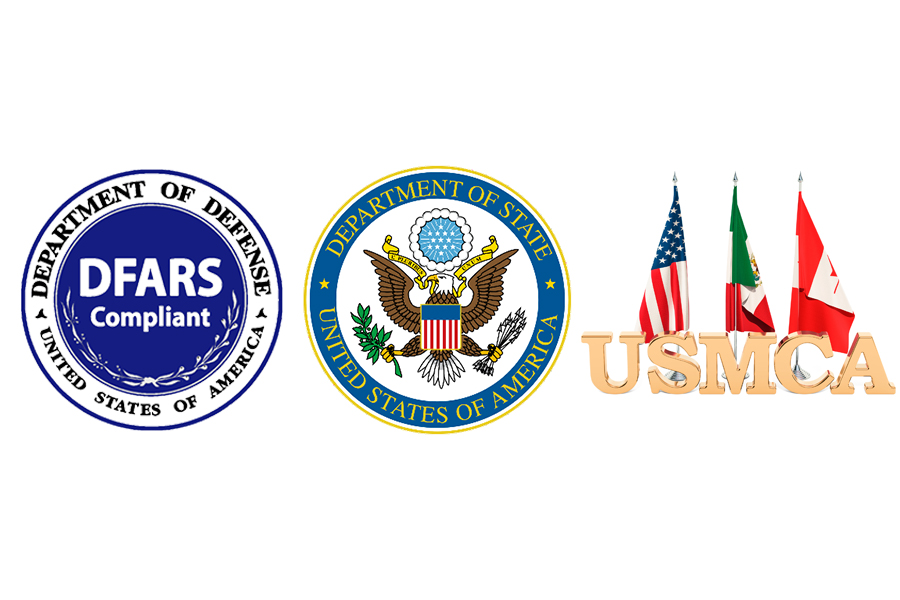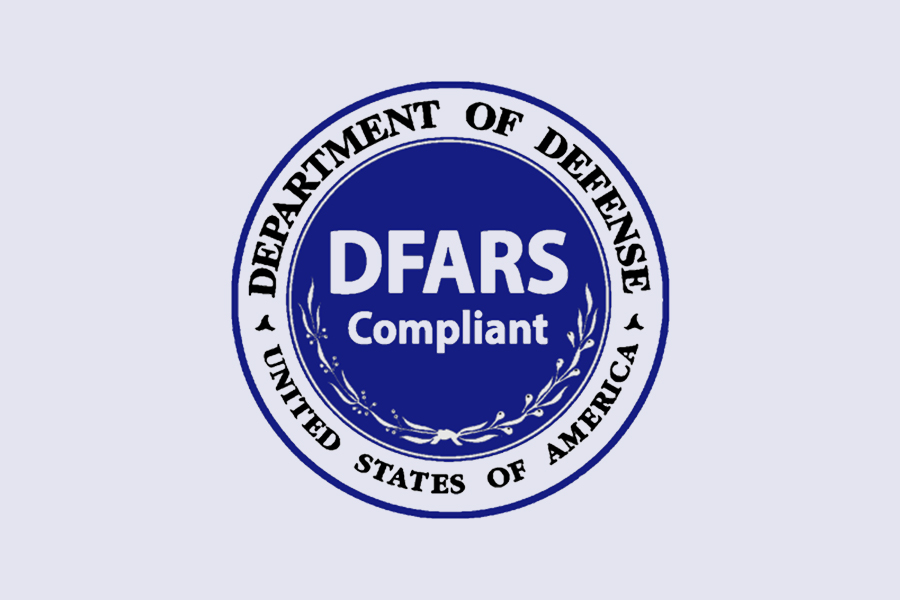DFARS Vs. Domestic
DFARS vs. National Regulations
In this article, we compare the requirements of DFARS with the fundamental national regulations. The Defense Federal Acquisition Regulation Supplement (DFARS) is part of the governmental rules applicable to contracts within the defence sector. National regulations refer to rules that apply to companies and suppliers operating within national boundaries.
The Defense Federal Acquisition Regulation Supplement is used in the defence industry. It covers areas that include product procurement, quality management and cybersecurity. The focus is on ensuring that all products meet defined safety and performance criteria. Based on documented experience, DFARS regulations typically impose more rigorous requirements compared to national standards, given that national security is at stake in defence contracts.
National Regulations are based on local, state or federal laws, although they do not require the additional measures needed under DFARS in defence projects. They cover a range of industries. National standards include, for example, environmental legislation, labour standards and product safety requirements for commercial goods. Although these regulations are significant, they tend to be less detailed than the DFARS requirements.
A typical example is the need to protect sensitive information. Contractors in the defence sector must provide evidence that they have implemented measures to prevent data breaches or privacy infringements. National regulations may require data protection but allow greater flexibility. For example, commercial enterprises might follow international standards for cybersecurity, which vary considerably.
Documented cases indicate that companies involved in defence projects must develop quality and traceability procedures with greater rigour. This is evident in the manner in which components, materials and finished products are tracked from the supplier to the end-user. A contract with the United States Department of Defense often requires companies to implement secure supply chain systems. In contrast, domestic companies generally operate under less demanding supplier arrangements and focus primarily on cost efficiency.
The differences become apparent when a defence contractor undergoes a system audit. DFARS audits are thorough and examine each step from production to delivery. Domestic audits sometimes concentrate on particular areas such as health, safety or environmental impacts. Consequently, compliance with DFARS guidelines permits no margin for error.
Many companies choose to apply DFARS standards to their domestic operations. They do so to enhance their competitiveness for defence contracts and to improve overall quality. Moreover, aligning with DFARS may improve the confidence of both government and private sector customers. In recent decades, companies have reported instances in which they restructured their production lines entirely after being awarded a government contract.
DFARS standards frequently require detailed documentation and plans for cyber risk management. These additions are generally not necessary for companies operating solely in domestic commercial markets. In one documented case, a supplier upgraded its IT systems in order to meet DFARS criteria for managing controlled technical data. Similarly, domestic suppliers may only require a basic security system, as they typically do not handle classified materials.
Evidence suggests that the additional efforts for DFARS compliance are offset by measurable benefits. Companies reduce the risk of security breaches and improve the reliability of their supply chains. The higher standards lead to increased investment in higher quality products and advanced manufacturing methods. Although the implementation costs may be high, for companies supplying the defence sector these investments have proved worthwhile.
Conversely, national regulations are easier to comply with. The administrative work, training and periodic reviews are often simpler. Smaller companies may find that the national approach better suits their available resources and market focus. Despite these differences, both frameworks aim to ensure that the products and services delivered meet quality, safety and ethical standards.
In summary, the Defense Federal Acquisition Regulation Supplement and national regulations pursue distinct objectives. The former ensures defined safety standards and full traceability in defence projects. The latter offers general standards that focus primarily on consumer safety and environmental protection. These differences affect the ways companies establish their supply chain strategies, manage compliance and conduct audits. Companies engaged in defence-related projects must adhere to strict procedures. Domestic companies operate under more flexible conditions with lower associated costs. The selection of the applicable framework depends on a company’s commercial objectives and industry focus. Further domestic, non-Chinese materials can be found at Stanford Advanced Materials (SAM).
Comparison Table
|
Aspect |
DFARS |
National Regulations |
|
Regulatory Authority |
Regulated by the United States Department of Defense |
Regulated by individual states or national authorities |
|
Focus |
Safety, quality and traceability in defence-related projects |
General consumer safety, environmental and labour standards |
|
Supply Chain |
Strict traceability and secure supply chain systems |
Flexible supply chain management based on cost and risk |
|
Compliance Requirements |
Intensive documentation, cyber risk management and detailed audits |
Less stringent, with periodic reviews and simpler documentation |
|
Associated Costs |
Substantial investments in upgrades and systems for security and traceability |
Lower costs, suitable for a range of industries |
|
Typical Examples |
Defence companies, aerospace companies |
Commercial product companies, regional service companies |
Conclusion
To conclude, the Defense Federal Acquisition Regulation Supplement and national regulations pursue different objectives. The former ensures defined safety standards and complete traceability in defence projects. The latter offers a set of general standards that focus primarily on consumer safety and environmental protection. The differences affect how companies structure their supply chain strategies, manage regulatory compliance and conduct audits. Companies involved in defence projects must adhere to strict procedures. Domestic companies operate under more flexible conditions with lower costs.
Frequently Asked Questions
Q: What does the Defense Federal Acquisition Regulation Supplement mean?
Q: It comprises a set of regulations for the defence industry as established by the United States Department of Defense for contractors.
Q: Why are the DFARS regulations more rigorous than national regulations?
Q: They safeguard national security by requiring detailed documentation and enhanced cybersecurity measures for defence-related projects.
Q: Can a company comply with both frameworks?
Q: Yes, many companies adopt DFARS standards domestically to improve quality and secure defence contracts.

 Converters & Calculators
Converters & Calculators
 Chin Trento
Chin Trento



